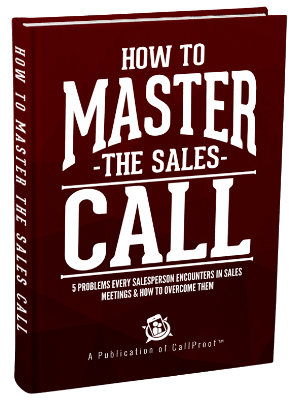Business owners often wear multiple hats selling product, managing accounts, and running the numbers. Hiring a salesperson can help take your business to the next level and allow you to pass on some of those responsibilities.
But before you hire a new employee, you need to do two things: consider whether you really need the sales rep, and then think about streamlining the process. Ask yourself these questions before you add a new sales rep, and ensure positive growth and an easier process with each expansion.
Do you really need a sales rep?
Before you make the considerable investment in a sales rep, vet other businesses’ experiences with bringing on additional team members. Work your network and reach out to sales managers in other states (who aren’t your direct competition and would be willing to speak with you) or connections on LinkedIn.
Getting firsthand insights on what’s worked for other businesses, knowing the right timing for hiring, and seeking advice on how to train sales reps will help you map out a plan for growth for your own business.
Are you ready to hire a new sales rep?
Ask yourself these questions to determine if and when your business is ready to hire a new salesperson:
Do you have the money?
Hiring a sales rep is a long-term investment. Sure, you could hire someone for a couple of months, but in order for the rep to be successful, they’ll need a few months just to get things off the ground. Making connections and getting to know the industry players takes time.
Preparations for bringing on your first outside sales rep should involve saving for one year’s salary. That way, you can prepare for a return on investment from a full year of the sales rep working his contacts and connections.
Do you have a mentor?
If you’re going to hire a sales rep, you’ll need someone in the office to guide the new hire. A mentor needs time in his schedule to devote to training and guiding the rep, but the investment pays off in terms of the sales rep’s success. The mentor will act as a cheerleader, show him the ropes, go to meetings to introduce the rep, and impart his knowledge of the target customer and understanding of how to reach that customer.
Just as the commitment to hire the rep requires monetary resources, you’ll also need the time resources to help the new sales rep be successful.
Does the salesperson know your audience?
The training process should involve learning the ins and outs of your primary audience. However, some aspects of selling to an audience can’t necessarily be taught. For example, a plumbing supply company might need to hire a former plumber or plumbing business owner to get along and communicate with plumbers.
Can you scale the training process?
If you’re looking to grow your business, be prepared to use the hiring process for the next sales rep. There’s no sense in repeating the training from scratch, so keep the future in mind as you walk this first sales rep through learning the ropes.
When you have meetings, even informal ones, record them. Use video to capture significant training sessions (ex. when the mentor walks the rep through product guides, sales presentations, etc.) Hire out the transcription process or have an administrative assistant take minutes and transcribe meetings so the materials are available in the future.
One Last Step
Before your new employee signs on the dotted line and officially joins your team, it’s important to put an obstacle in the way as a final test. Once you identify a great candidate and have all the other steps in place, put the individual through a trial run to see what he’s made of.
Offer to pay the potential rep a fixed rate for coming into the office for a day. Give him a really uncomfortable task to do, such as knocking on 20 doors, asking a question and collecting business cards. This kind of test evaluates if the salesperson can really talk to people, and doesn’t mind approaching strangers and striking up conversations. For a few hundred dollars, you’ll quickly vet the candidate’s skillset, and if he doesn’t work out, you’ve saved yourself a ton of headaches and a lot of money that would have been wasted on a non-starter.




